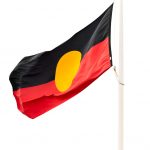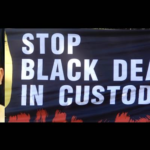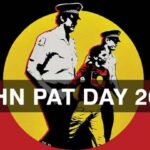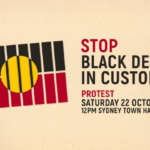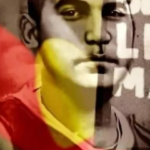Black Deaths in Custody Continue Decades After the Royal Commission
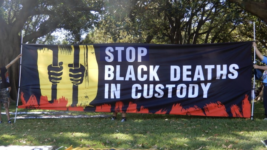
Two Indigenous men died in custody this week – one in New South Wales and the other in Western Australia, highlighting yet again the systemic racism and human rights abuses in prisons.
In New South Wales, Wiradjuri man TJ Dennis killed himself in his prison cell at Silverwater Correctional Complex last weekend.
In recent days, details have also emerged that he was the subject of drawing sketched by Canberra Prison Staff during a game of “hangman” on a whiteboard in a room accessible to custodial and non-custodial staff at the Alexander Machonochie Detention Centre (AMC) in Canberra, in May 2018.
‘Hangman’ sketch
TJ was the person prison staff saw fit to depict as being hanged, while a boat sails past which purports to depict members of the first fleet cheering and saying “yay” as they see him hang
It has been reported that the drawing stayed on the board for days, and that photos of the drawing were taken and distributed across the prison, including to other inmates.
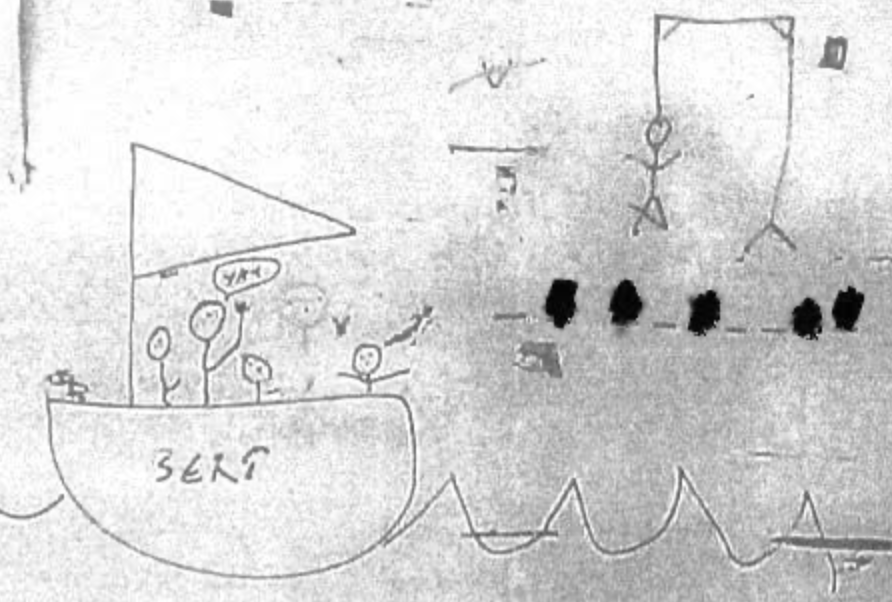
The appalling incident was raised with the Human Rights Commission, and the ACT Corrective Services Commissioner labelled it as “abhorrent” and “extremely disappointing”.
However, those responsible were never held to account.
TJ Dennis was transferred some time afterwards from Canberra to Silverwater Correctional Complex , because he had concerns for his welfare at AMC.
Transfer of inmates
Each state has their own legislation to govern prisoner transfers and it is similar across all jurisdictions.
In New South Wales, the Prisoners (Interstate Transfer) Act 1982 outlines the framework for inmates to apply and serve their sentences in Correctional Centres in States or Territories, other than the one they were convicted in. Prisoners can apply to be transferred on ‘welfare grounds’ or ‘trial grounds’, the latter meaning to deal with court matters.
Transfer against advice of Indigenous health service
Reports suggest that the ACT Government transferred TJ Dennis against advice from the Winnunga Nimmityjah Aboriginal Health and Community Service.
The health service was advocating for his transfer to a specialist forensic mental health facility where he could receive treatment for his complex mental health issues, which were related to childhood trauma, as well as be monitored carefully, because he had previously attempted suicide multiple times at AMC.
Calls for joint inquiry
Winnunga Nimmityjah chief executive Julie Tongs has told media that in her opinion Mr Dennis’s death was “not only predictable, it was avoidable” had the ACT State Government heeded the service’s advice and provided Mr Dennis with care appropriate to his mental health condition.
“We can’t keep burying our young people because they haven’t got the proper care that they deserve….They’re entitled to mental health services and proper care like everybody, but they put them in prison and forget about them,” she says.
She is calling for a joint inquiry into TJ Dennis’ death (meaning an inquiry which will include both the ACT and NSW) and also a separate investigation into the AMC, which has been the subject of some serious complaints regarding human rights concerns — including forcibly strip searching a sexual assault survivor.
The ACT Government has released a short statement in the wake of Mr Dennis’ death. Because his suicide occurred in New South Wales, it is now the responsibility of NSW Corrective Services which operates and manages Silverwater Correctional Facility, although the ACT Government has stated its willingness to cooperate and assist any investigations into his death.
All deaths in custody trigger an inquest which, in the case of TJ Dennis, will explore the circumstances surrounding his death and whether or not it was preventable. It will most likely also consider whether he was getting the appropriate care that he needed, given his suicidal tendencies.
The number of Indigenous deaths in custody just keeps rising
National death in custody statistics (including those in youth detention centres) are recorded by the National Deaths in Custody Program (NDICP) which has kept records since 1980.
Since the Royal Commission into Indigenous deaths in Custody in 1991, there have been 516 recorded deaths of Indigenous people who died in custody – 335 deaths occurred in prison, 177 occured while in police custody and four deaths occurred in youth detention.
Last year’s NDICP Annual Report showed that between July 2021 and June 2022 there was an increase of 23 deaths recorded in the previous year. Of the total of 106 recorded deaths in custody, 24 were deaths of Indigenous people – eight occured while in police custody and 16 in prison. And the highest number of deaths occured in New South Wales where there were 5 deaths.
According to the national 2023 figures, 48 people have died in custody this year – 8 of them have been Indigenous.
Death in a Western Australian prison
Another Indigenous man also died in custody this week, although very few details are available about his death .
A statement released by at Albany Regional Prison say the man was found unresponsive in his cell at the facility and could not be revived.
The prison is the only maximum security facility in regional WA and currently homes about 300 inmates.
Police are now investigating the incident in Western Australia and are preparing a report for the coroner as is the protocol in that state.
However, as we all know, in many cases, the recommendations made by these inquests typically go ignored. They’re reported to the media, for the sake of ‘transparency’ and yet then often filed, with little-to-no action actually taken.
It’s important to remember too that deaths in custody are tragic, particularly when they are preventable, but they are only one part of the story. Australia’s history of systemic racism and human rights abuses of Indigenous people are also very serious issues across the spectrum of the justice system (and society as a whole) which need urgent attention and have done for way too long.


